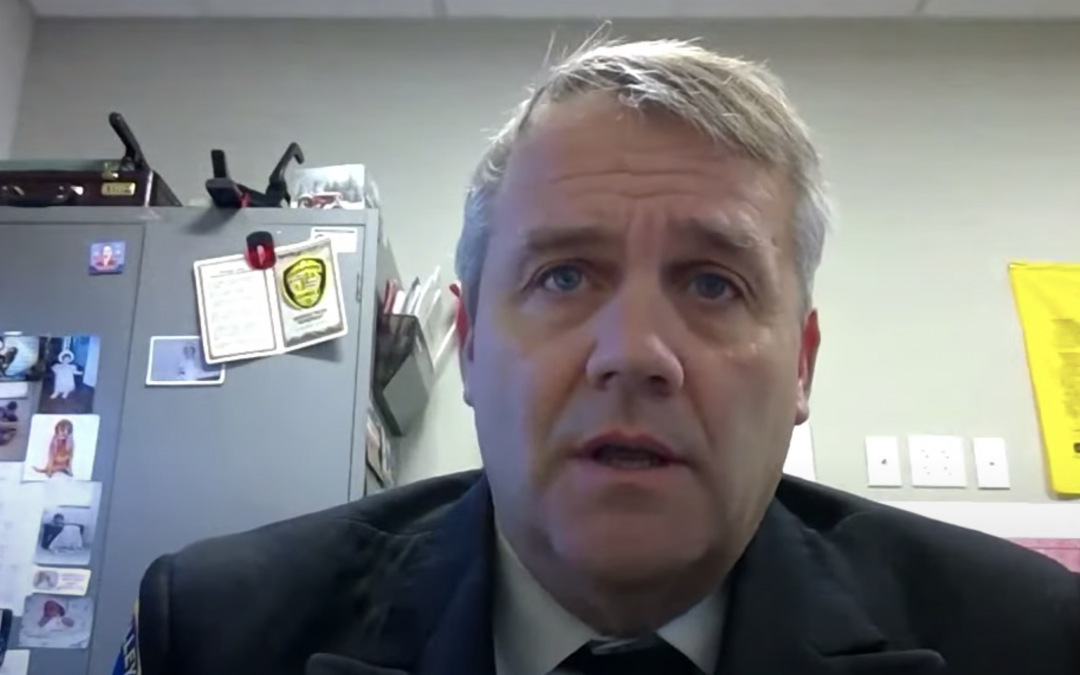WASHINGTON – Emergency management officials from Washington and other Western states on Tuesday called on the Federal Emergency Management Agency to improve mitigation measures for wildfires and make the agency’s disaster relief easier to access and more transparent.
As wildfires become more frequent and intense, FEMA needs to prioritize mitigation and prevention efforts to stop fires before they begin and improve its communication with state and local governments, Rich Elliott, deputy chief of Kittitas Valley Fire & Rescue, told the House transportation committee’s Economic Development, Public Buildings and Emergency Management Subcommittee.
Elliott, who also represents the International Association of Fire Chiefs, said without federal funding to create fire-adapted communities and conduct land management activities, local communities have to shoulder the cost of wildfires, which many cannot afford. Many local fire departments are also suffering from staffing shortages, which delays their response to wildfires, Elliott said.
Without aggressive action and improved coordination by FEMA, Elliott said, the severity and costs of wildfires will increase.
“Mitigation and the prevention efforts are absolutely where we believe we should be focusing because that’s going to create for our grandkids less of an issue with wildland fire in the United States,” Elliott said. “We can’t turn this around in a year, but we need to get ahead of this problem.”
The National Weather Service has called 2021 a record hot and dry year in Eastern Washington. This year, the state has had 86 fires, which have burned more than 1.4 million acres of land across the state, according to the Northwest Interagency Coordination Center. In June, Spokane Fire Department implemented outdoor recreational fire restrictions amid a record heat wave in the Pacific Northwest that saw temperatures hit above 100 for days on end. The department lifted the restrictions earlier this month for Spokane County and Spokane Metro Area due to forecast cooler and wetter weather conditions, but is still urging residents to exercise caution.
Andrew Phelps, director of the Oregon Office of Emergency Management, said federal disaster response and recovery assistance has been built based on hurricanes and floods, but wildfires last longer than either of those disasters and cause more immediate evacuations.
Phelps called on the agency to update its processes and rules to take into account the different responses needed for wildfires.
Kacey KC of the Nevada Division of Forestry said FEMA should streamline the way it disburses money so municipalities and other local governments can use the federal funds for safety efforts as quickly as possible.
The same problem occurs in disaster relief aid for individuals, experts and lawmakers said.
In its efforts to prevent people from fraudulently obtaining disaster relief, Rep. Troy Carter, D-La., said FEMA has imposed burdensome requirements on vulnerable individuals to prove their identity and losses.
Casey Hatcher, deputy chief administrative officer of Butte County, California, told the subcommittee that a central issue to improving emergency response to wildfires is making assistance more accessible to survivors, especially those who have low incomes or are part of marginalized communities. FEMA’s complex bureaucratic processes create delays in assistance and make it harder for individuals to receive aid, Hatcher said, and recommended that the agency should coordinate with local case managers and community organizations to speed up the relief and disbursement process.
Early last month, FEMA expanded the types of documentation individuals can use to prove home ownership or occupancy, which Oregon’s Phelps called a step in the right direction. Still, Phelps said, there is more work to be done in reducing barriers to disaster relief.
“Navigating a complex web of federal programs, assistance programs after you’ve lost everything – your home, your job, in some cases, family members – does nothing to alleviate the trauma that folks have experienced during a disaster,” Phelps said.

